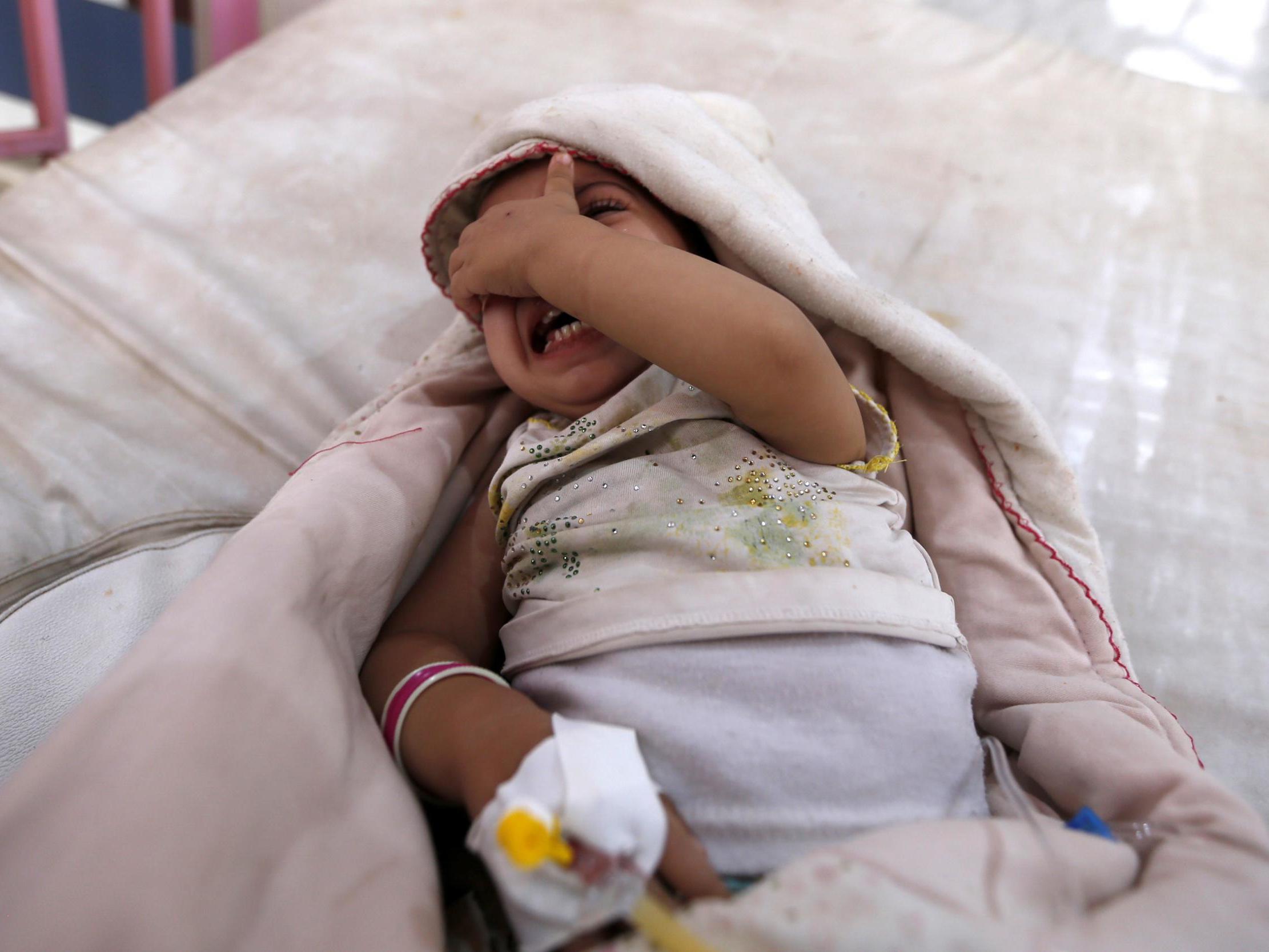Suspected Yemeni cholera cases ‘almost triple’ after Saudi offensive on Hodeidah region, says charity
Estimates suggest 30 per cent of all infections affect children under five-years-old
Your support helps us to tell the story
From reproductive rights to climate change to Big Tech, The Independent is on the ground when the story is developing. Whether it's investigating the financials of Elon Musk's pro-Trump PAC or producing our latest documentary, 'The A Word', which shines a light on the American women fighting for reproductive rights, we know how important it is to parse out the facts from the messaging.
At such a critical moment in US history, we need reporters on the ground. Your donation allows us to keep sending journalists to speak to both sides of the story.
The Independent is trusted by Americans across the entire political spectrum. And unlike many other quality news outlets, we choose not to lock Americans out of our reporting and analysis with paywalls. We believe quality journalism should be available to everyone, paid for by those who can afford it.
Your support makes all the difference.Suspected cases of cholera have almost tripled in the Hodeidah region in Yemen after the Saudi-led military offensive, according to Save the Children.
The government recorded a 170 per cent increase in the number of suspected cases, up from 497 in June to 1342 in August, the charity said.
The spike is in line with national data that also shows a steady rise across Yemen.
Approximately 30 per cent of all suspected cases are children under five years old, according to data from the World Health Organisation.
Saudi Arabia leads a coalition of Arab states fighting against the Houthi movement that controls Yemen’s capital.
International pressure has mounted on the kingdom to do more to limit civilian casualties in a civil war that has killed more than 10,000 people and pushed the already impoverished country to the brink of famine.
Speaking from Sanaa, Tamer Kirolos, Save the Children’s Yemen country director, called for a political solution so the fighting could stop and said children dying from preventable causes was “unacceptable”.
“Treating cholera is straightforward providing children can get the rehydration and antibiotics they need, and hospitals and clinics are adequately equipped. But nearly four years of conflict has led to a near-total collapse of the health system in Yemen,” Mr Kirolos said.
“The warring parties have repeatedly attacked medical facilities, making some of them unusable or inaccessible. If this continues many more children could die of cholera and other preventable diseases.”

In a recent UN survey of more than 2,000 respondents across Yemen, more than half (56 per cent) cited water supply damage as the most common form of infrastructure damage – an issue which has increased the risk of further cholera outbreaks.
“There are no aboveground water sources in Yemen so the vast majority of communities depend entirely on wells and water trucks to meet their daily needs,” Mr Kirolos said.
“Even in towns and cities water systems are in a state of disrepair or damaged from the fighting. Limited availability often results in poor hygiene practices and sanitation, heightening the risk of further cholera outbreaks.”
Speaking from Hodeidah, Dr Mariam Aldogani, Save the Children’s Hodeidah field manager, said she was seeing more and more children with cholera.
“I met one mother of two who has acute diarrhoea and she told me her whole family is affected because they don’t have access to clean water any more. They all drink from an open well and don’t even have enough money to buy cooking gas needed to boil the contaminated water they collect,” Dr Aldogani said.
“Her husband has not been paid a salary since last year. She knows she’s putting her children’s health at risk. But what can she do when they cry from thirst? So they just drink, and hope for the best.”
Saudi Arabia has admitted to targeting civilians, including children, and had pledged to address their errors.
The UN Committee on the Rights of the Child examined the Saudi record on compliance with a treaty protocol on children in armed conflict and repeatedly raised the issue of children killed by coalition attacks in Yemen.
“This has been going on a number of years. But still there is no information that any perpetrators or people responsible for these kinds of actions have been prosecuted or sanctioned or dealt with in any way,” Clarence Nelson, the panel’s vice chair, said.
Osaiker Alotaibi of the Saudi defence ministry told the panel that the Saudi-led coalition was committed to upholding international humanitarian law. The coalition had a list of 64,000 potential targets in Yemen that were off limits to attack, including schools and hospitals.
Coalition investigations had however uncovered “the existence of certain unintentional mistakes in a number of these operations”, Mr Alotaibi said.
“The task force recommended that perpetrators should be held to account and victims should enjoy redress.”
Agencies contributed to this report

Join our commenting forum
Join thought-provoking conversations, follow other Independent readers and see their replies
Comments